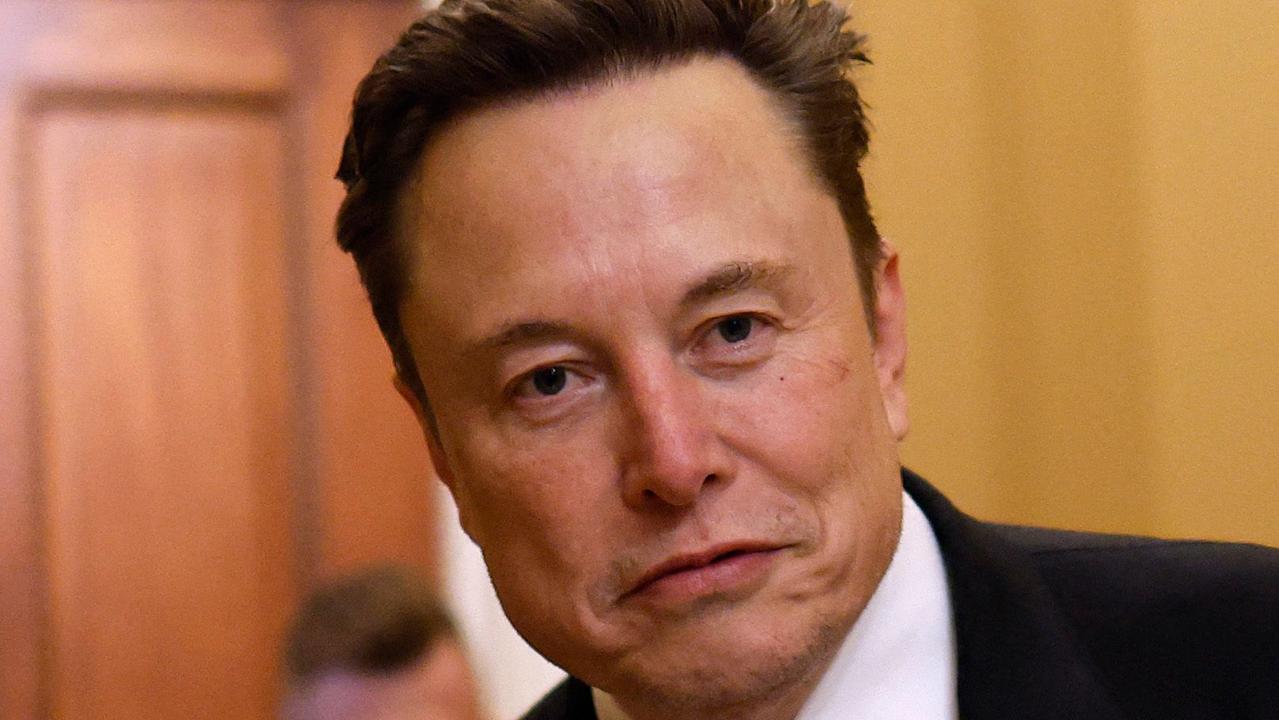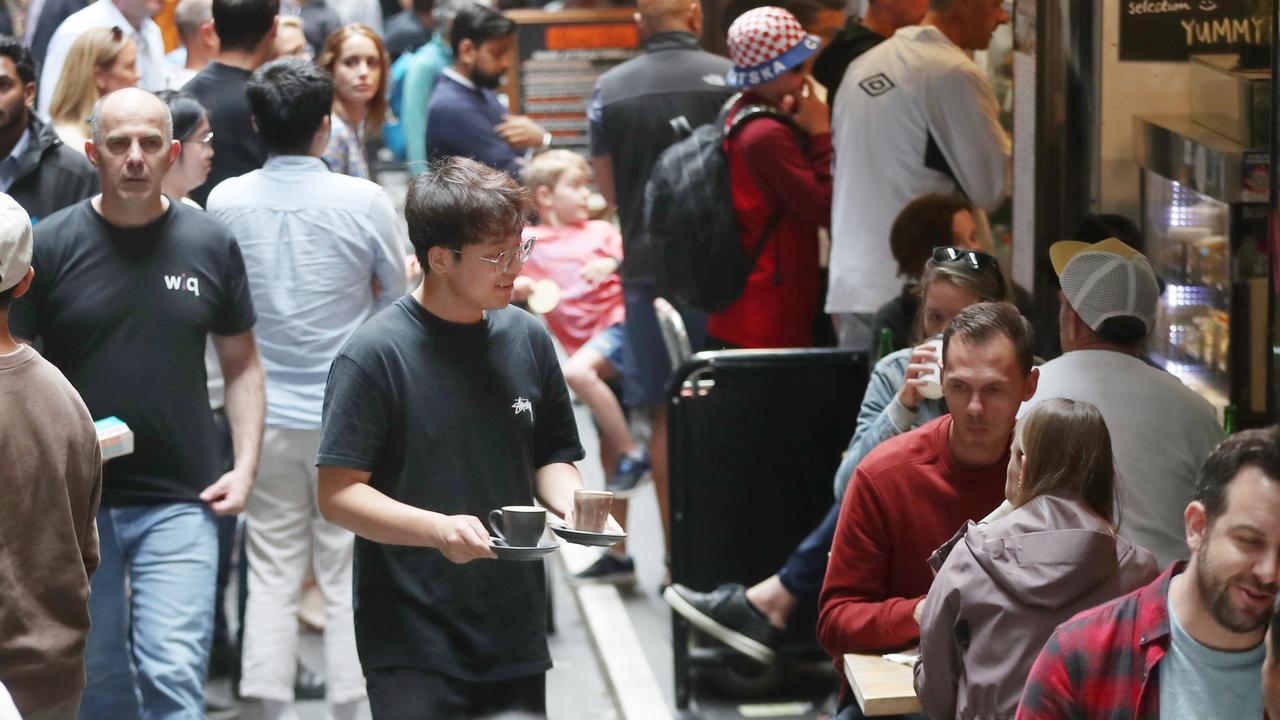Truth about viral prediction that work as we know it will be ‘extinct’ within a decade
A billionaire entrepreneur’s prediction that work as we know it will be “extinct” in a decade quickly went viral on social media.

At Work
Don't miss out on the headlines from At Work. Followed categories will be added to My News.
A series of posts on social media purporting to contain stark predictions from a tech guru about the future of work, including that the 9-to-5 model will be dead in a decade, have gone viral.
Millions of people have viewed and shared the “words” of billionaire entrepreneur and noted futurist Marc Andreessen since they were shared by a popular account on X, formerly Twitter, at the weekend.
Andreessen has been credited with “predicting” the rise of the internet in the early 1990s.
He co-founded early browsers Mosaic and Netscape and in recent years has been an early evangelist for now-mega trends, from the sharing economy that birthed Uber to artificial intelligence and ChatGPT.
As such, his “forecast” about the death of work as we know it made for compelling content, with those posts viewed 11.6 million times and rising.
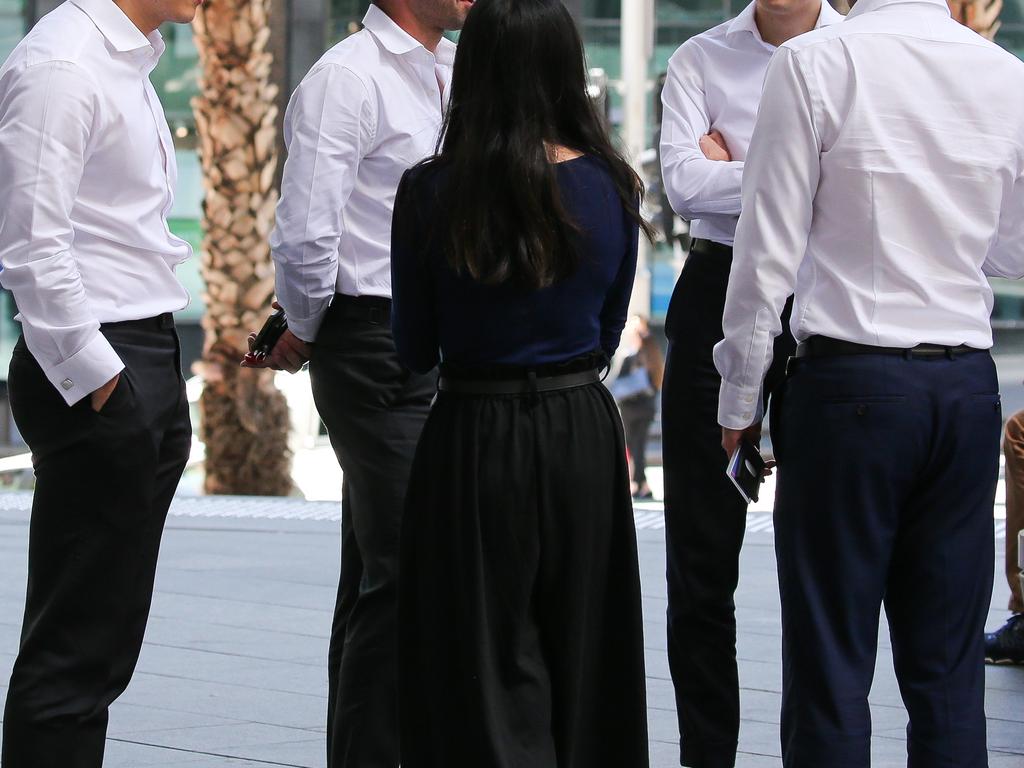
MORE: Future jobs: Emerging industries and jobs of the future
But there is good reason to doubt Andreessen ever declared that “your 9-to-5 job will be extinct … by 2034 (because) everything will be so cheap that you won’t have to work anymore”.
News.com.au could not find any original remarks by Andreessen along the lines of the 9-to-5 model facing “extinction”. He was approached for comment.
The remarks and the format of the posts are strikingly similar to another thread that went viral in July, also predicting “your 9-to-5 job is dying” and “by 2034, it’ll be extinct” but this time attributed to LinkedIn founder Reid Hoffman.
Careers expert Tim Duggan wrote about the viral post in October for The Sydney Morning Herald and revealed Hoffman never made such a mammoth call.
While both sets of claims are likely overstated – if not entirely invented – there’s no doubt that work, and how it’s done, is in the midst of a major transformation.

But Duggan, author of the critically acclaimed book Working Backwards, said it’s unlikely to unfold in a timeline as simple as the one hinted at in those viral posts.
“Instead, it’s changing in fits and bursts, depending on your industry and business,” he said.
“To put it bluntly, no, I don’t think the 9-to-5 job will be extinct within 10 years, but it certainly might look pretty different than it does today.”
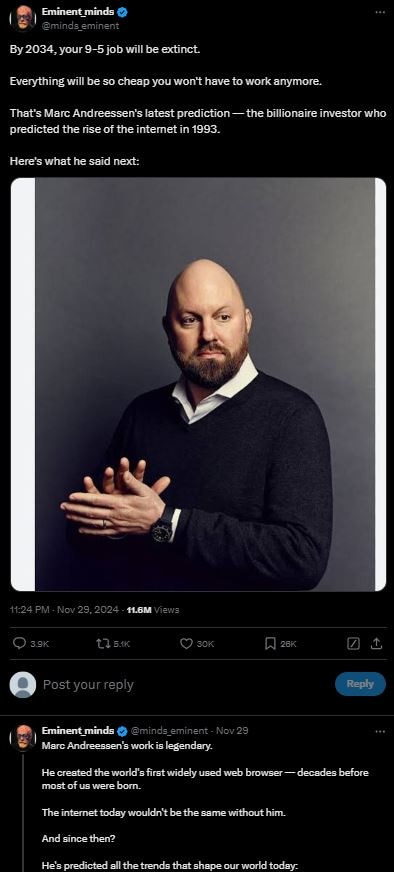
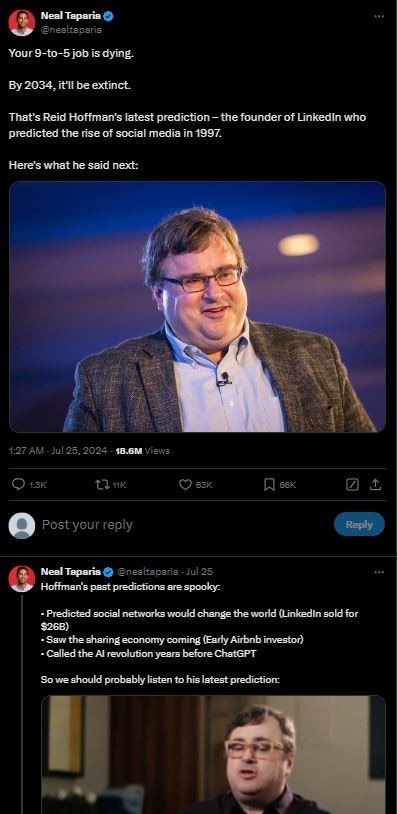
MORE: Australia’s 20 highest-paying jobs in each state
Jamie Dimon, boss of global investment bank JPMorganChase, agrees.
Last week, the finance giant sat down for an interview with Bloomberg, in which he made his own fairly big forecast on the outlook for the five-day workweek.
While it was much more measured than the spurious extinction predictions going viral on X, Dimon is of the view that technological advancements will mean we’ll “probably be working three-and-a-half days a week” pretty soon.
A small but growing list of companies are trialling four-day workweeks, with initial indications showing staff are happier, more efficient and even healthier as a result.
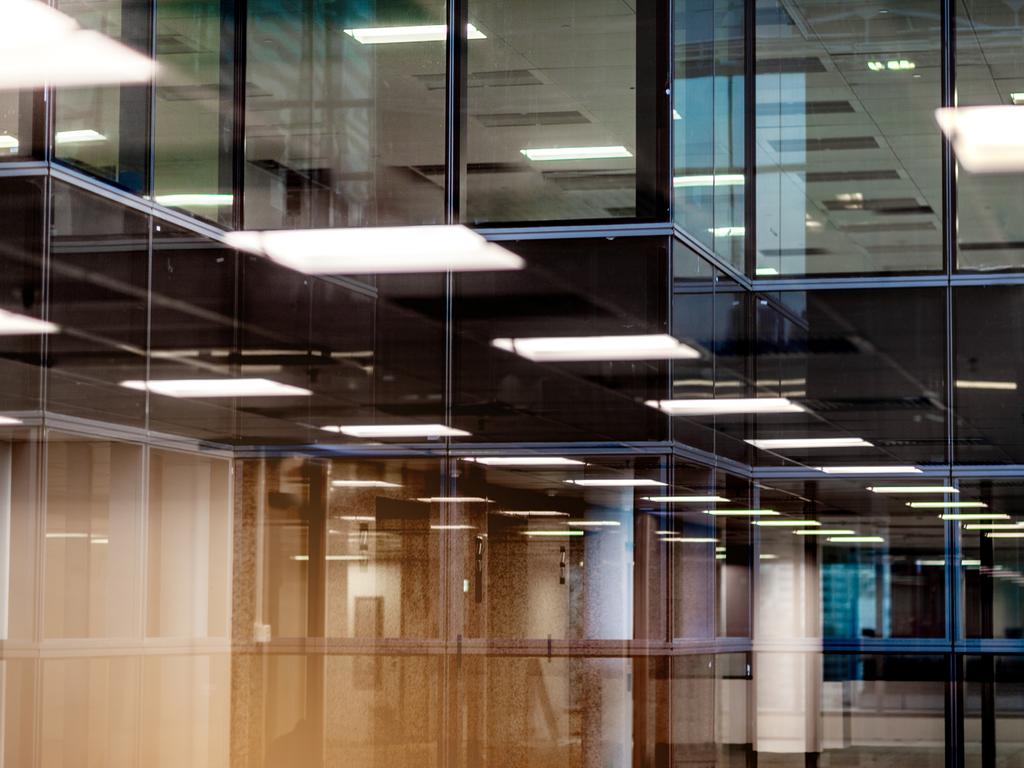
Duggan sees that kind of flexibility becoming a major trend over coming years, with four-day workweeks and nine day fortnights likely to be common.
Most of the research on this is that productivity doesn’t decrease, but so many aspects of an employee’s life, from happiness to fulfilment, does,” Duggan said.
“This is one of the most exciting trends of the last decade, and around 90 per cent of all companies who experiment with a four-day workweek never return to five days as they find the benefits far outweigh the drawbacks.”
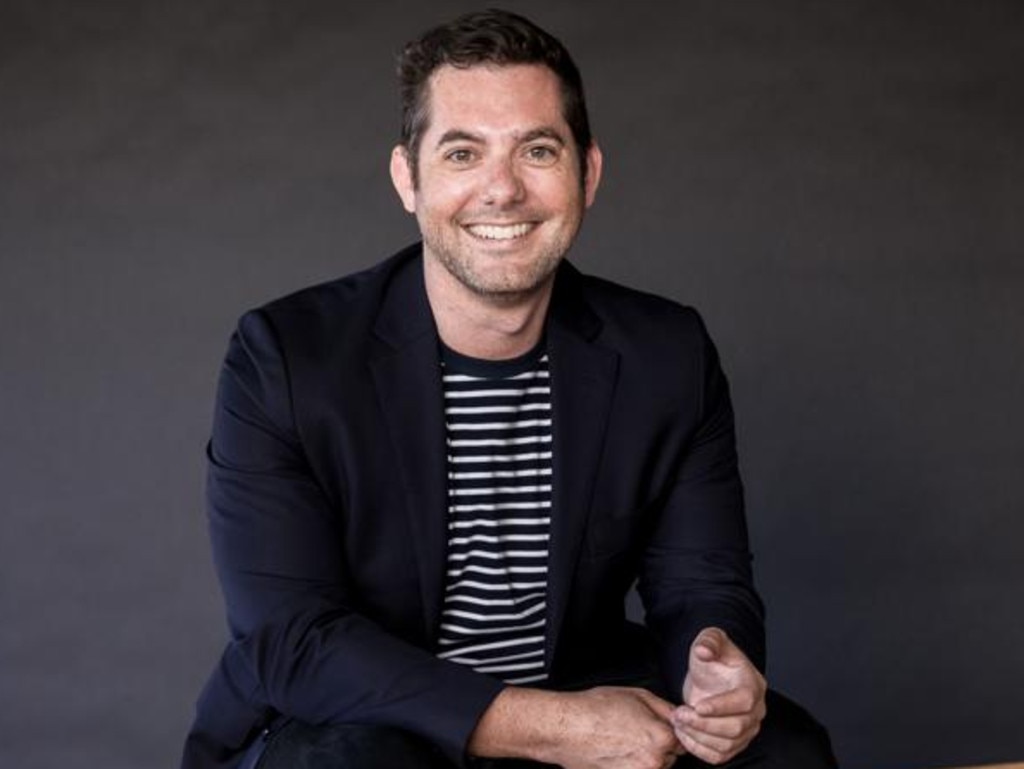
More broadly, Duggan also expects that hybrid, flexible and remote working is “here to stay” despite notable efforts by some corporations to mandate a permanent return to the office.
“We are now almost five years on from the start of the pandemic, and this is one trend – unlike things like baking bread and online concerts – that has refused to go back to the way it was.”

Associate Professor John Hopkins from Swinburne University’s School of Business, Law and Entrepreneurship, said the pandemic acted as a catalyst for change.
“Humans aren’t machines and they’re not able to work at 100 per cent all of the time, and Covid opened workers’ eyes and started a conversation about conditions and flexibility,” Dr Hopkins said.
Research last year found Australian workers on average put in 5.4 additional hours of unpaid overtime per week.
“We did research around the Right to Disconnect legislation and had workers tell us about answering calls, messages and emails on their wedding day, at funerals and while on vacation,” Dr Hopkins said.
“The sense is that being connected and available 24/7 is the norm. When we think about the future of work, I hope it’s a healthier place than it is today.”
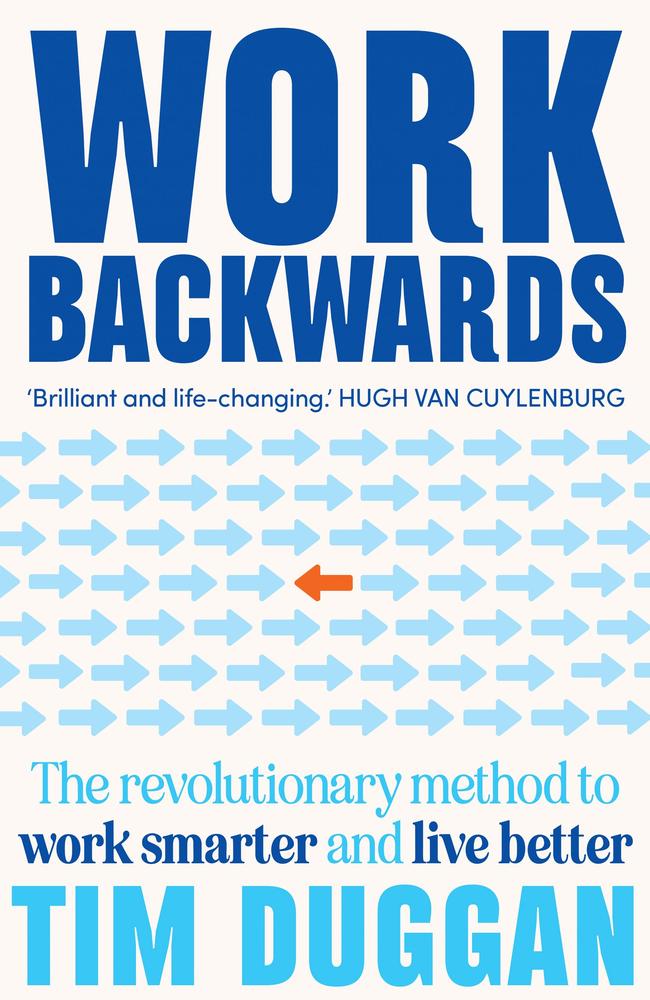
As AI technology rapidly evolves and is adopted in more and more industries, the International Monetary Fund has predicted 40 per cent of jobs will be affected in some way.
Meanwhile, the International Labour Organisation fears some 75 million jobs are at risk of being lost to AI-powered automation.
Even bleaker was the March 2023 report from investment bank Goldman Sachs that as many as 300 million jobs globally were at risk.
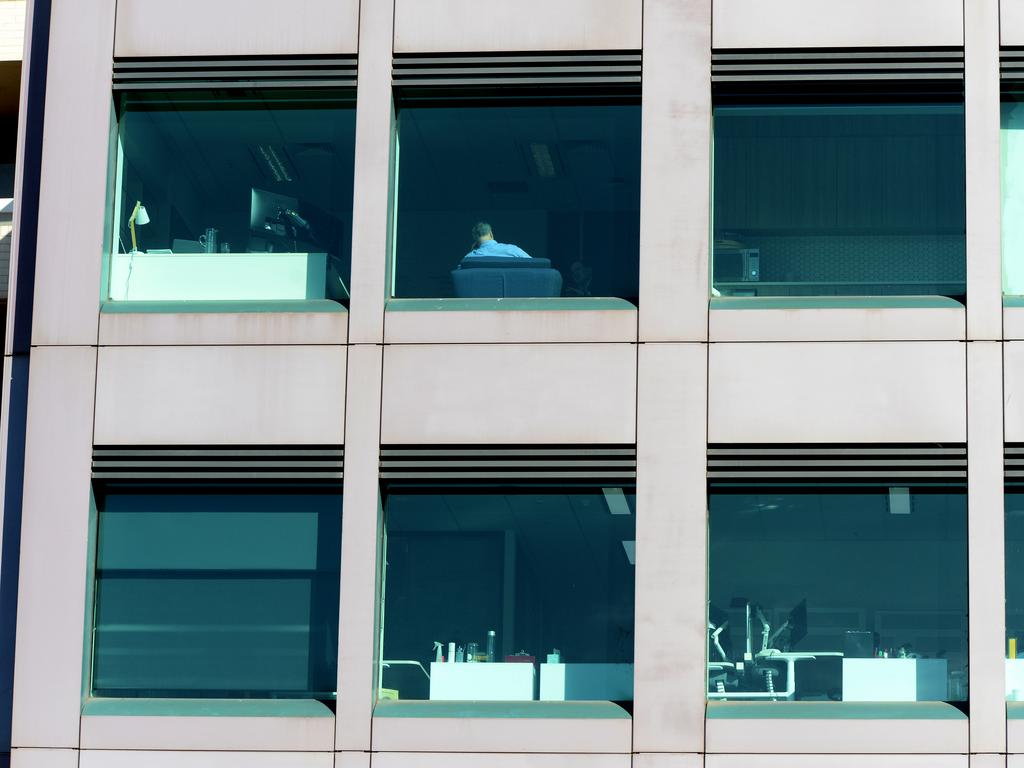
“I don’t doubt the impact of AI in terms of saving time,” Dr Hopkins said. “But I’m sceptical about these kinds of predictions.
“Look back at decades of technological breakthroughs, from commercial flights to the fax machine, email and the internet, and ask what’s changed.
“We’re working longer hours than ever, not fewer. I’m sceptical whether any of the time saved by AI will be given back to workers.”
In fact, it could be that AI makes people more available for largely unpaid work, much in the way email and the internet have allowed workers to be constantly contactable.
Duggan said AI will replace some, but is optimistic is will “augment and assist” the vast majority of workers, making their lives easier and richer.
“It can be natural for many people to be scared of lots of rapid change in the workplace, but we are actually living through one of the most remarkable moments in history to be working,” he said.
“Our workplaces are changing, but there will still be a place for all types of workers in the future.”
Originally published as Truth about viral prediction that work as we know it will be ‘extinct’ within a decade







